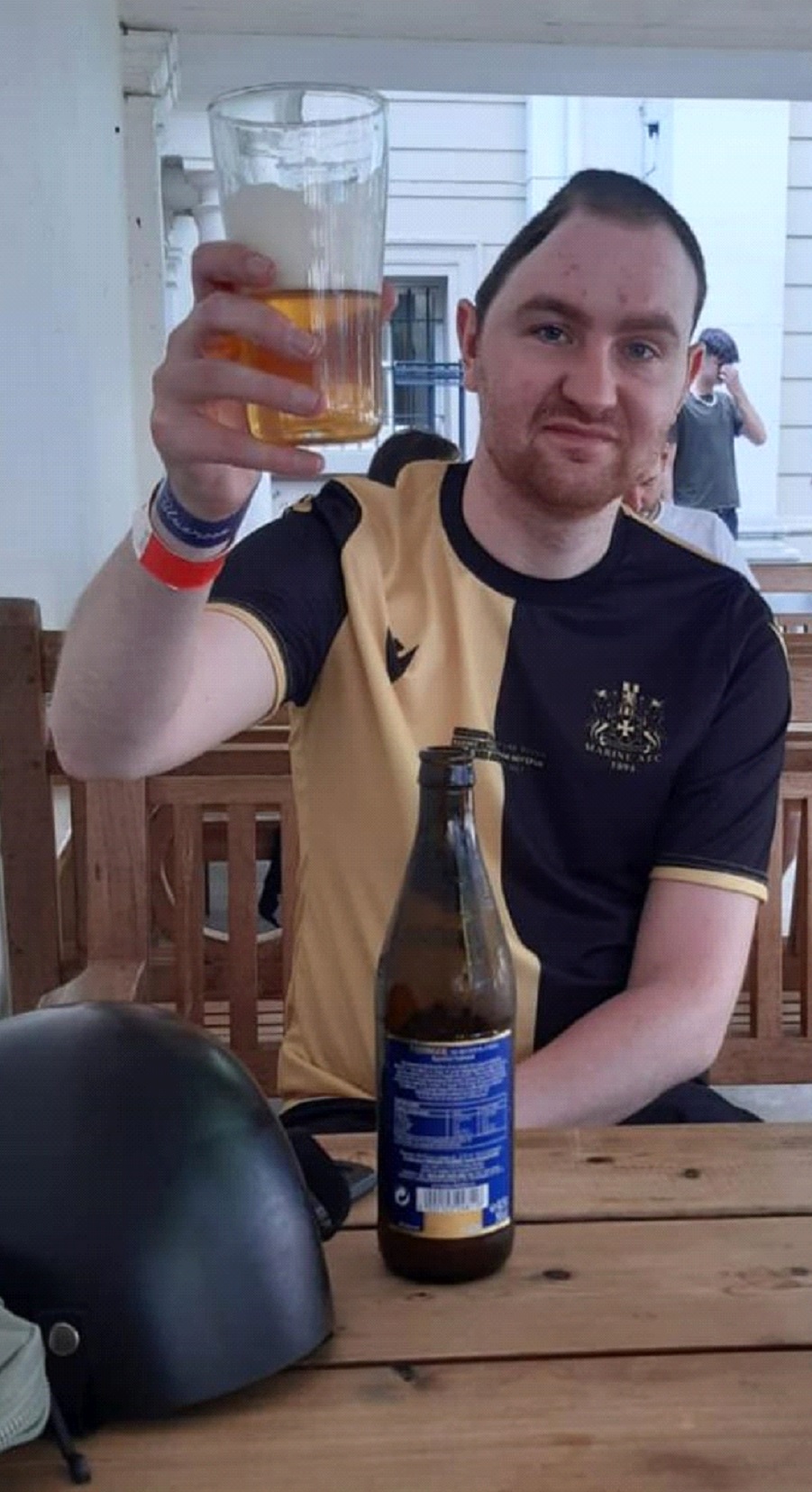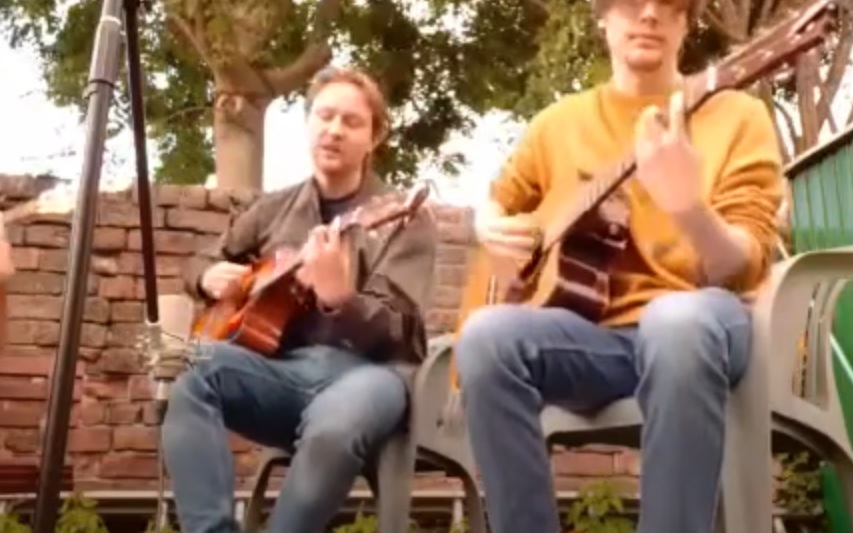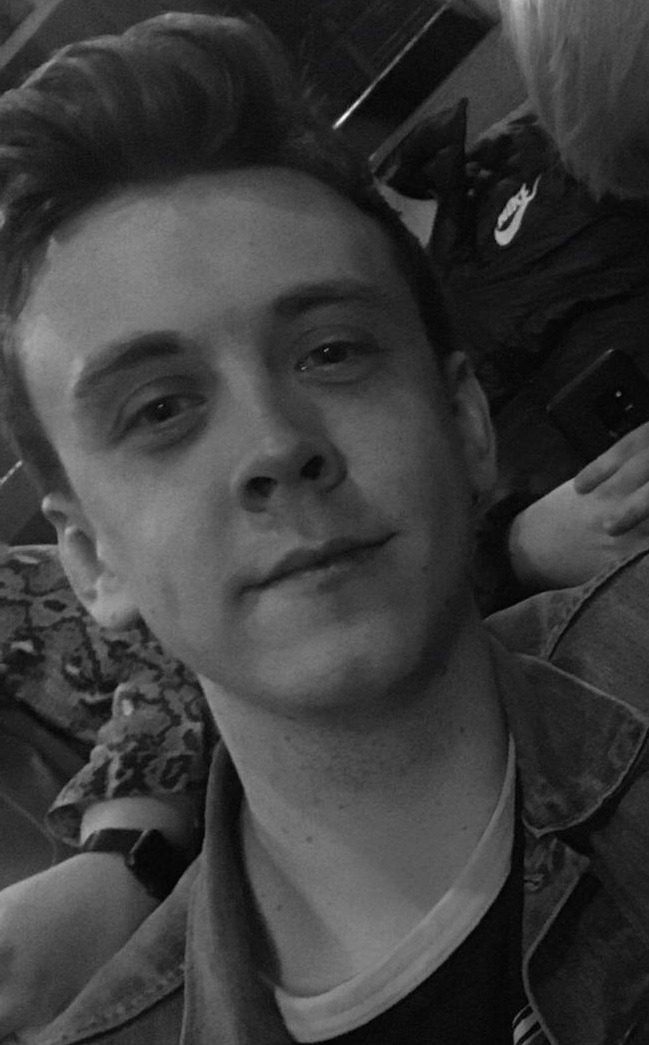Stab attacks victim on ‘long’ road to recovery after ‘catastrophic’ injury
Michael Callaghan was stabbed in the neck, leaving him partially paralysed down his left side.

An engineering graduate who suffered a “catastrophic” stab wound in the Birmingham knife attacks is facing a long road to recovery, his mother has said.
Michael Callaghan’s injuries were so serious his family “don’t really understand how he even survived”.
His mother Anne Callaghan said: “He is on this very long journey at the moment”, and remains “devastated” at the death of his close friend Jacob Billington, who was killed in the attacks.
Mr Callaghan was one of eight people knifed and slashed in a string of apparently motiveless and otherwise unconnected assaults carried out by Zephaniah McLeod in Birmingham city centre in the early hours of September 6, last year.
The attacks claimed the life of Mr Billington – Mr Callaghan’s friend since school and a fellow member of their band The Vedetts.
McLeod later went on to admit 23-year-old Sheffield Hallam University graduate Mr Billington’s manslaughter.
The 28-year-old also admitted four counts of attempted murder, including one attack which left Mr Callaghan partially paralysed, and three separate offences of wounding with intent to cause grievous bodily harm.
The court heard how McLeod had previous convictions for robbery, imitation firearm possession, assault and supplying drugs and was known to the prison and probation services.
He was also known to mental health services, had a history of hearing voices telling him to “stab” and “kill” and had been suffering paranoid schizophrenia since 2012.
While McLeod has been dealt with by the courts, Mr Callaghan’s treatment continues, having recently undergone surgery to patch a hole in his skull, and undergoing intensive physiotherapy which has enabled him to walk again.
Mrs Callaghan has spoken of how her son is “resilient”, and is determined to regain his independence while still “deeply mourning” the loss of his close friend.

She first discovered her son had been attacked when a nurse at a Birmingham hospital rang at 5.30am to say he was “in theatre and he was stable”, she said.
“We didn’t know what she was talking about,” said Mrs Callaghan.
“I said: ‘What’s happened?’ and she said: ‘He’s been stabbed,’ and I just couldn’t grasp it at all.”
Once at hospital in Birmingham, the gravity of her son’s injuries became clear.
“The knife completely severed his jugular vein and carotid artery, and also something called the (left) vagus nerve,” she said.
“They had to open him up (his neck) because they couldn’t find the ends of the artery and the vein to be able to pull them together.”
“He lost a huge amount of blood and we don’t really understand how he even survived, because people don’t survive those injuries. Obviously, it’s wonderful.”
She described how within 24 hours of being stabbed, Mr Callaghan then had a “catastrophic” stroke caused by the “huge” blood loss from his injury.
His family were warned that if he survived, he would “have terrible life-changing injuries”, with his mother recalling “the word ‘vegetable’ was used”.
Mr Callaghan, an otherwise fit and healthy 24-year-old, needed “last resort” craniectomy surgery to remove pressure on his brain, caused by the stroke.
She said a surgeon operated to remove part of her son’s skull, lifting pressure on his brain.
“He looked terrible that day because half of his face, where the stroke was, it was just all bruised and I can remember it,” said Mrs Callaghan.
“It was all swollen and bulbous, lumps coming out of his face.”
The operation worked, but in a fresh blow Mr Callaghan then developed pneumonia from being on a ventilator.

His blood pressure again went up, with doctors having to medically paralyse him and treat him with a cocktail of drugs to fight off the infection.
It worked. Mrs Callaghan said: “I think it was the following Wednesday when they said that he’d be OK. So, from Sunday (the day of the attack), like 10 or 11 days.”
The Callaghans stayed in Birmingham – though they were prevented from staying by their son’s bedside because of the strict Covid measures in force.
It meant they missed Mr Billington’s funeral, but were able to watch over video-link.
Charting his physical injuries, Mrs Callaghan said: “His left arm is still paralysed.
“He’s having physio on his arm and his physiotherapist is optimistic that there will be some movement in the next couple of months.”
A side-effect of the stroke means his left-hand vocal cord is weak, so he is continuing speech therapy to build strength.
For Mr Callaghan, The Vedetts’ singer-songwriter, getting back to some form of singing again was an important recent marker, with his family charting several milestones.
“We’ve had real milestones: being able to sit up… getting up on his feet, using the stairs,” she said.
Mrs Callaghan said: “If you look back to how it was nearly 14 months ago…
“It’s just so much better.”
“He can’t play the guitar, obviously, he can’t play the piano two-handed,” she added.
“There’s a lot he can’t do.
“But we’re all just optimistic about this left hand coming back.
The attack has also reduced his left-field of vision, so he can no longer drive.
However, Mrs Callaghan said: “I couldn’t have designed him better.
“He was in a very good place before it happened.
“He was kind, compassionate, empathetic, all that kind of thing – but strong and robust.
“All those qualities have helped him and he’s just so determined.
“He wants to be as independent as possible,” added Mrs Callaghan.
The latest “big milestone” came at the start of November when surgeons inserted a polymer plate to repair the hole in his skull.
Before that, he had to wear a protective plastic helmet, which he grew to “detest”.
“He’s tall, so you see somebody with the helmet – 6ft 3in – and a stick, and he got looked at, people would notice him, and he didn’t like that,” she said.

There are also emotional wounds, not least the loss of Mr Billington.
The pair had grown up together, went to the same schools – even the same city to study, although Mr Callaghan went to the University of Sheffield while Mr Billington went to Sheffield Hallam.
Mrs Callaghan said: “There aren’t words.
“Just total disbelief, I still can’t believe it.”
Paying tribute to Mr Billington, she said: “He was a real joker.
“He was the kind of person that he’d enter a room and the atmosphere would be lifted.
“He walked with a bounce, you saw him around… and he had something about him that you’d recognise him straight away.”
Mrs Callaghan also praised the “utterly amazing” friends who were with her son and Mr Billington on the night.
She said: “They’re absolutely heroes.”
Friends would turn up outside hospital with chairs, to talk to Mr Callaghan on the phone or through his ward’s window.
They even set up “Crosby FM”, an hour of “lads’ banter”, and would then send him the recordings to keep his spirits up.
She added the community support had also been “fabulous”, as well, while stars from Mr Callaghan’s beloved Everton FC had sent signed shirts and messages of encouragement.
“Neville Southall sent all kinds of paraphernalia,” said Mrs Callaghan.
“He’s had two videos off Duncan Ferguson, Graeme Sharpe, Michael Keane.”
Mrs Callaghan said of McLeod: “All I want is for him to be off the streets, because I don’t think he can be ever trusted.
“My fear is that somebody will say, in the future that ‘he’s well now’.
“He’s not answered any questions.
“We don’t know anything about why he did what he did.
“How can anybody say he’s safe again?”
Asked about her hopes for Mr Callaghan’s future, she said: “If he could play the guitar again, that would just be absolutely wonderful for him.”





